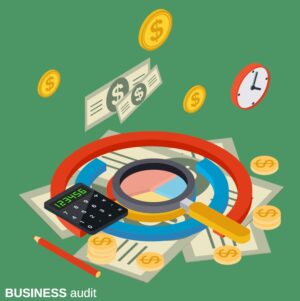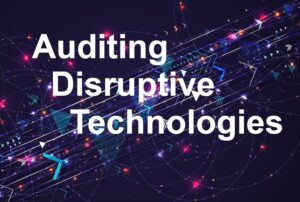On March 27, 2025, a press release appeared on the SEC website[1] that said in part:
The Securities and Exchange Commission today voted to end its defense of the rules requiring disclosure of climate-related risks and greenhouse gas emissions.
SEC Acting Chairman Mark T. Uyeda said, “The goal of today’s Commission action and notification to the court is to cease the Commission’s involvement in the defense of the costly and unnecessarily intrusive climate change disclosure rules.”
The rules, adopted by the Commission on March 6, 2024, create a detailed and extensive special disclosure regime about climate risks for issuing and reporting companies.
Given the SEC’s indefinite delay of mandatory carbon emissions reporting[2] and the European Union’s imposition of scope limitations on its Corporate Sustainability Reporting Directive (CSRD),[3] it’s tempting to conclude that the ESG (environmental, social, and governance) accounting sector is on the brink of expiration.
But is this a settled issue? An article in the Villanova Law Review observes, “Although this [SEC] decision has negative consequences for investors, it does not mean the climate disclosure rules are gone for good; the Eighth Circuit still has to consider the legal challenges to the rules and could uphold the mandated disclosures. Even if the Eighth Circuit declines to uphold the rules, state governments may require climate disclosures.”[4]
Some surprising facts provide evidence that proponents of sustainability accounting are continuing to establish relevant practices within the business sector. These facts have surprising implications for the enduring role of the sustainability field within the global economy.
Five Surprising Facts
1. Chris Wright, the founder and recent CEO of the oilfield services firm Liberty Energy, was appointed Secretary of the U.S. Department of Energy in 2024. He has been called a “climate change denier” by various mainstream news organizations.[5]
Liberty Energy, though, continues to dedicate a prominent section of its website to ESG. In fact, the main menu on its home page displays a prominent link that is labeled “ESG.” It leads to several web pages that are dedicated to sustainability content, including an annual ESG report with data that has been compiled in accordance with Sustainability Accounting Standards Board (SASB) standards.[6]
2. Exxon Mobil, the second largest energy company in the world (based on market capitalization) behind Saudi Aramco,[7] has likewise been called a “climate change denier” by established news organizations. According to National Public Radio (NPR), “Exxon became the architect of a highly effective strategy of climate change denial that succeeded for decades in politicizing climate policy and delaying meaningful action to cut heat-trapping pollution.”[8]
Recently, however, the firm announced that it is “on track to meet our 2030 emission-reduction plans” by pursuing “$30 billion in lower-emission investments [during] 2025–2030.”[9] And Texas, the home state of Exxon Mobil, has become the leading producer of solar and wind energy in the United States.[10]
3. Several years ago, the U.S.-based Sustainability Accounting Standards Board (SASB), as well as the Task Force for Climate-related Financial Disclosures (TCFD), the International Integrated Reporting Council (IIRC), and the Climate Disclosure Standards Board (CDSB), played leading roles in the definition of sustainability standards. Today, though, none of these organizations continue to exist as an independent organization.
During the past few years, though, the intellectual content of all these organizations has been acquired by the IFRS Foundation. These acquisitions have firmly established the Foundation as the leading promulgator of sustainability accounting standards in all jurisdictions, including the United States.[11]
4. At one time, the traditional scope of the ESG sector was restricted to the consideration of environmental, social, and governance issues. It evolved from an earlier definition of the Triple Bottom Line, which was focused on the consideration of environmental, social, and macro-economic issues.[12]
Today, however, leading promulgators of ESG metrics and standards have expanded their scope of content to encompass risks and challenges that were previously considered matters of general management accounting. The Global Reporting Initiative (GRI), for instance, now publishes sustainability standards on management issues like customer privacy, occupational health and safety, and procurement practices.[13]
5. The Integrated Reporting framework was initially created to guide the development of a now-obsolete form of ESG reporting called Integrated Reporting. According to its original concept, an integrated report represented a single comprehensive document that would present all value-relevant financial and managerial information about organizational performance.
Today, though, the IFRS Foundation presents a revised version of the Integrated Reporting framework as a model for “integrated thinking” throughout an organization.[14] The framework has thus become more closely aligned with the integrated models of Enterprise Resource Planning (ERP) systems, with the framework’s strategic, operating, and financial elements reflecting the corresponding sections of integrated business plans.[15]
Four Surprising Implications
SASB metrics, emission reduction programs, IFRS Foundation guidance, and the inclusion of general management accounting functions within the ESG field serve as indicators of the enduring impact of the sustainability accounting sector. The stubborn longevity of these factors conveys some surprising implications about the durability of ESG accounting.
A. We can no longer utilize simple labels like “climate change denier” and “ESG opponent” to define the ESG policies of entities. Companies like Liberty Energy and Exxon Mobil, and states like Texas, have adopted (and, in certain areas, are even leading the development of) policies and practices that strengthen the sustainability sector.
B. We can no longer refer to ESG standard-setters as “American” or “European” or “global” in nature. The IFRS Foundation is playing a leading role in this trend by acquiring entities that fall outside of its traditional focus on financial accounting and external to its traditional geographic catchment areas that lie beyond the United States.
C. We can no longer define the ESG reporting sector as a field that is primarily focused on climate change and DEI issues. It now encompasses many topics that impact the sustainable (i.e., long term) value of reporting entities and of their internal and external stakeholder groups. In other words, it now encompasses many topics that have traditionally been considered mainstream management accounting topics.
D. Indeed, for many resource planning and management applications, ESG principles and practices have integrated with mainstream business activities. This may explain why it can be difficult to find many employment positions that are exclusively dedicated to sustainability concerns. Like the formerly “niche” field of artificial intelligence, ESG has now permeated the core business functions of many organizations.
A typical accountant, paying a modest level of attention to the sustainability sector, may not necessarily be aware of these implications. An objective consideration of certain facts, though, may lead an accountant to conclude that the pulse of the ESG accounting field is beating with relative strength.
Michael Kraten PhD, CPA is an executive management consultant and business educator
References
Copley, Michael. 2023. “Exxon minimized climate change internally after conceding that fossil fuels cause it.” NPR. https://www.npr.org/2023/09/14/1199570023/exxon-climate-change-fossil-fuels-global-warming-oil-gas.
European Council, Council of the European Union. 2025. “Simplification: Council agrees position on sustainability reporting and due diligence requirements to boost EU competitiveness.” https://www.consilium.europa.eu/en/press/press-releases/2025/06/23/simplification-council-agrees-position-on-sustainability-reporting-and-due-diligence-requirements-to-boost-eu-competitiveness.
Exxon Mobil. 2025. “Key takeaways.” https://corporate.exxonmobil.com/sustainability-and-reports/advancing-climate-solutions#Aboutthereport.
Friedman, L. 2025. “Energy Secretary Attacks Offshore Wind and Dismisses Climate Change.” The New York Times. https://www.nytimes.com/2025/09/05/climate/wright-energy-offshore-wind-turbines.html.
Galer, S. 2020. “SAP CEO Christian Klein: When People and Technology Meet, Amazing Things Happen.” SAP News Center. https://news.sap.com/2020/06/christian-klein-at-sapphire-now-people-technology/.
GRI. 2025. “GRI Standards: English Language.” https://globalreporting.org/how-to-use-the-gri-standards/gri-standards-english-language/.
IFRS. 2025. “Integrated Reporting Overview.” https://www.ifrs.org/issued-standards/integrated-reporting/.
Liberty. 2025. “Our Commitment To Bettering Human Lives.” https://libertyenergy.com/esg/.
Miller, K. 2020. “The Triple Bottom Line: What It Is & Why It’s Important.” Harvard Business School Online. https://online.hbs.edu/blog/post/what-is-the-triple-bottom-line.
Motley Fool. 2025a. “The Largest Energy Companies by Market Cap in September 2025.” https://www.fool.com/research/largest-energy-companies/.
Motley Fool. 2025b. “Which States Produce the Most Renewable Energy?” https://www.fool.com/research/renewable-energy-by-state/.
Reuters. 2025. “US appeals court hits pause on challenges to SEC climate rule.” https://www.yahoo.com/news/articles/us-appeals-court-hits-pause-231113814.html.
SASB. 2025. “About Us: The Evolution of SASB Standards.” https://sasb.ifrs.org/about/.
[1] “SEC Votes to End Defense of Climate Disclosure Rules,” press release, SEC, March 27, 2025, https://www.sec.gov/newsroom/press-releases/2025-58.
[2] The United States court system is pausing legal challenges of the regulatory mandate because of the indefinite delay in enforcement (Reuters, 2025).
[3] In June 2025, the European Union announced a “simplification” of the CSRD requirements that explicitly incorporated limitations on its scope of disclosures (European Council, 2025).
[4] Alysse Danyi, “A Bad Day for Investors: SEC Abandons Its Defense of Climate Disclosure Rules,” Villanova Law Review, August 7, 2025, https://www.villanovalawreview.com/post/3348-a-bad-day-for-investors-sec-abandons-its-defense-of-climate-disclosure-rules.
[5] On September 5, 2025, for instance, the New York Times published an article entitled “Energy Secretary Attacks Offshore Wind and Dismisses Climate Change” (Friedman, 2025).
[6] Liberty’s 180-page annual sustainability report and its 4-page set of SASB metrics are available for free download (Liberty, 2025).
[7] Motley Fool publishes the market cap rankings of energy sector firms. The rankings are updated on a daily basis (Motley Fool, 2025a).
[8] Although National Public Radio is a radio network, it publishes text articles in the News section of its website (Copley, 2023).
[9] Exxon publishes these statements in a section of its website entitled “Advancing Climate Solutions” (Exxon Mobil, 2025).
[10] Texas leads all U.S. states in total power produced by renewable energy sources, measured by megawatt hours. Motley Fool republishes this data and notes that its source is the U.S. Energy Information Administration (Motley Fool, 2025b).
[11] The IFRS Foundation notes that its International Sustainability Standards Board (ISSB) now “builds on and consolidates” the work of these predecessor entities (SASB, 2025).
[12] Harvard Business School Online published an article entitled “The Triple Bottom Line: What It Is & Why It’s Important” in a section of its website entitled “Business Insights.” It is available for free review (Miller, 2020).
[13] The GRI classifies its customer privacy, occupational health and safety, and procurement practice standards as GRI #418, #403, and #204, respectively (GRI, 2025).
[14] The IFRS Foundation dedicates a section of its website to integrated reporting and its impact on “integrated thinking” and “a more efficient and productive allocation of capital” to various “financial, manufactured, intellectual, human, social and relationship, and natural” resources (IFRS, 2025).
[15] On June 16, 2020, for instance, SAP published a feature article entitled “SAP CEO Christian Klein: When People and Technology Meet, Amazing Things Happen.” The article noted that Porsche’s use of SAP’s “intelligent enterprise resource planning (ERP) suite” ensures that it “will have one integrated reporting system across its application landscape.” Although SAP is a private corporation, it publishes text articles in the News Center section of its website (Galer, 2020).


